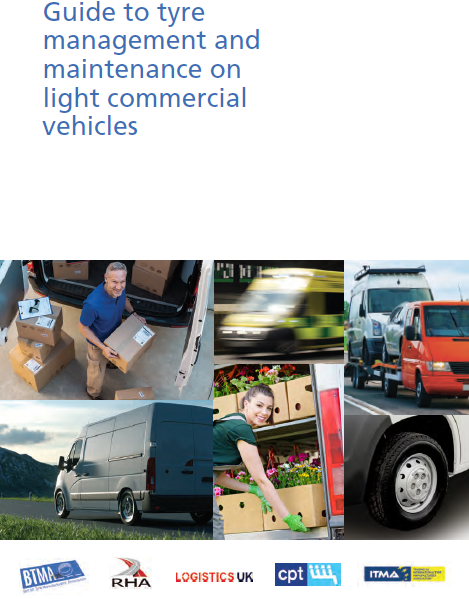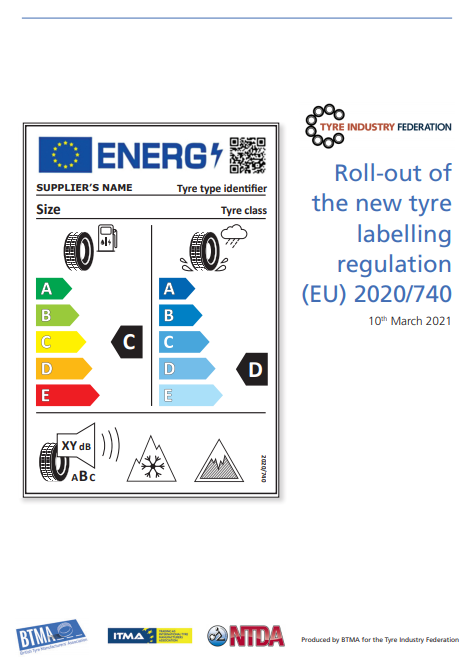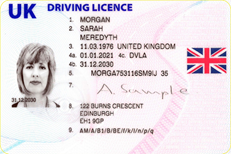
Reduction in plug-in grant to adversely affect EV uptake – NFDA
The Government has announced a number of changes to the Plug-in Car Grant (PICG), the Plug-in Van Grant (PIVG) and the Plug in Motorcycle Grant (PIMG) rates and eligibility criteria. The new terms apply from 07:00 on Wednesday 15 December 2021. The Government has temporarily suspended the grant portal as we transition to the new rates.
Continue Reading
Biennial MOT testing ‘not the correct solution’ – NFDA NI
NFDA Northern Ireland has responded to Northern Ireland’s Department for Infrastructure’s consultation on proposals to carry out MOT tests every two years. Sue Robinson, NFDA NI chief executive said that moving to biennial testing “is not the correct solution to the issues currently facing the NI Testing Scheme.” She said that the solution to current capacity issues should not come “at the expense of road safety.” The proposals were put forward earlier this year with the region’s MOT testing capacity struggling to keep pace with demand.
Continue Reading
ETRMA calls for EC to publish legislative proposal on in-vehicle data access
The European Tyre & Rubber Manufacturers’ Association (ETRMA) recently participated in the European Commission (EC) “access to in-vehicle data” workshop. Thanking the EC for the chance to contribute to such a strategic topic for the automotive industry, the ETRMA called on the EC to publish “an ambitious legislative proposal on access to in-vehicle data” in the first quarter of 2022.
Continue Reading
TPMS valves becoming mandatory for more vehicles
The 74th session of the UNECE WP 29 GRBP Working Party on Noise and Tyres will take place in September, and ahead of this meeting the Association of European Wheel Manufacturers (EUWA) highlights an impending change to regulations covering tyre pressure monitoring systems. This change will see the mandatory fitment of TPMS valves extended to further classes of vehicles.
Continue Reading
DVLA and HCVA to open dialogue over registration disputes
DVLA chiefs have agreed to talk to classic and historic vehicle sector leaders in a bid to solve long-running problems over vehicle registrations. Agency Chief Executive Julie Lennard told MPs she would be ‘very happy’ to explore closer engagement with the industry in order to resolve disputes and improve relations.
Continue Reading
Petrol, diesel HGV ban ‘completely unrealistic’ – PRA
Following the Government’s decision to ban new diesel or petrol heavy goods vehicles (HGVs) sold after 2040 as part of a plan to decarbonise the transport sector, the Petrol Retailers Association (PRA) has described the announcement as “optimistic but completely unrealistic.”
Continue Reading
Volta Trucks calls for greater ambition in UK Government plan
Full-electric commercial vehicle manufacturer and services provider Volta Trucks, has issued a guarded welcome to the publication of the UK Government’s Transport Decarbonisation Plan, but has called for a greater level of ambition to tackle the climate and air quality emergency faced by the environment.
Continue Reading
Tyre industry, government partner on van tyre management best practice guide
The tyre industry and UK government have produced a best practice guide for van operators and drivers. The guide, available on the British Tyre Manufacturers Association website, has been produced to help improve roadworthiness and reduce the risk of tyre-related incident. It is in part a response to the latest data from the Driver and Vehicle Standards Agency (DVSA), which shows defective tyres remain consistently the primary reason for roadside prohibitions. They account for between 15 and 22 per cent of these potentially instantaneous bans of the vehicle’s use. Other categories of prohibitions, such as Lamps and Reflectors account on average no more than 7 per cent or 8 per cent, with the majority averaging 4 per cent.
Continue Reading
New guidance published to prevent use of vehicles as weapons
New guidance has been published designed to prevent commercial vehicles, including vans, lorries, buses, coaches and even cranes, from being used as weapons in acts of terrorism. The standard, which has been published by the British Standards Institution (BSI) and sponsored by the Department for Transport, sets out a raft of security measures to prevent criminals and terrorists from accessing commercial vehicles.
Continue Reading
Self-driving cars will mean changes in the law, says legal expert
Following the recent news that self-driving vehicles could be made legal on UK roads next year, Paul Loughlin, a solicitor specialising in motoring law at Stephensons, spells out some of the implications of what this could mean for drivers.
Continue Reading
Do you know when to turn your headlights on?
Uswitch, the comparison website, recently commissioned a survey among UK motorists to test their knowledge of the rules concerning when headlights should be switched on. Says Joel Kempson, Personal Finance Writer and car insurance expert at Uswitch; “With the days getting longer, and restrictions easing, we’ll soon be hopping back into our cars for the first time in months. And although they say driving is like riding a bike – you never forget – there are some things that do slip our minds.”
Continue Reading
NFDA ‘disappointed’ at Plug-in Grant cut
Commenting on the government’s decision to cut the Plug-in Grant for electric vehicles, Sue Robinson, Chief Executive of the National Franchised Dealers Association (NFDA), which represents franchised car and commercial vehicle dealers in the UK, said: “The decision to cut the Plug-in Car Grant and Van & Truck Grant is extremely disappointing as it risks undermining the progress the UK has been making towards a zero-emission market in line with the 2030/2035 deadline set by the Government.
Continue Reading
British tyre industry upgrades to new tyre labelling system
On 1 May 2021 new tyre labelling rules take effect across Europe. Now, the Tyre Industry Federation (TIF – the umbrella body for UK tyre associations BTMA, ITMA and NTDA) has published details of its proactive response to the rules and specifically to their implementation in the post-Brexit environment. In short, cross-industry cooperation means the latest information will be available for the market from 1 May. The UK government Department for Transport (DfT) has welcomed the tyre industry’s approach to the implementation of the new tyre labelling regulations since the solution allows the continued flow of labelling information to consumers despite initial regulatory differences between Great Britain and Northern Ireland.
Continue Reading
Horiba MIRA: Brexit trade rules will drive UK demand for battery development
Test specialist Horiba Mira expects the new ‘rules of origin’ clause will drive a surge in demand for development and testing of EV battery packs. It comes as last month Aston Martin boss and Nissan planning chief Dr Andy Palmer issued a warning to the UK government that the Brexit trade deal, alongside ambitious plans to ban the sale of new petrol and diesel cars by 2030, presents a risk of “crippling tariffs” for the UK automotive industry unless the sector invests heavily in domestic battery production for electric vehicles.
Continue Reading
EU flag is removed from new-style UK driving licences and number plates
To mark the UK’s exit from the EU, the EU flag has been removed from all UK driving licences and number plate designs, with the first batches issued from 1 January 2021. While existing licences and number plates will still be valid, the new versions will be issued to everyone renewing a licence or getting one for the first time.
Continue Reading

